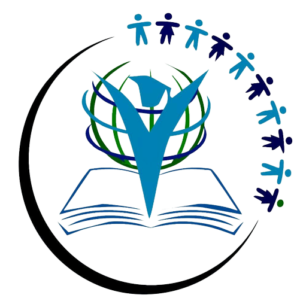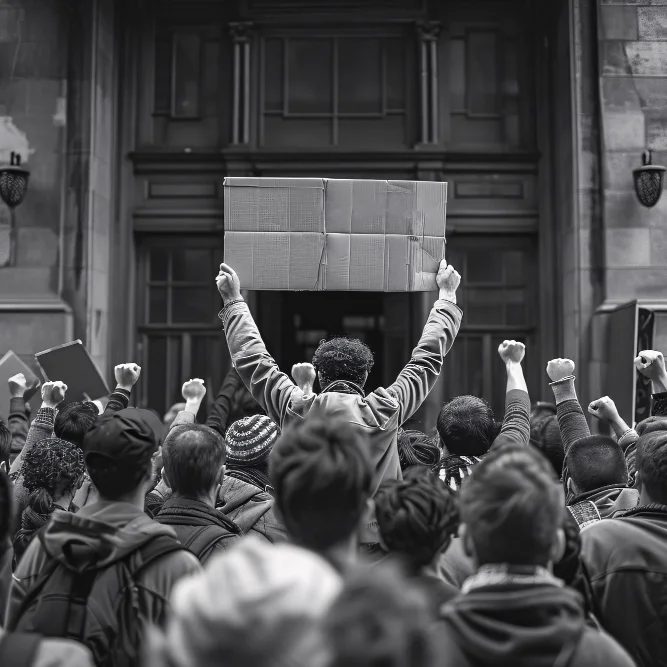In any democratic society, the right of citizens to voice their concerns, complaints, and grievances is crucial for ensuring accountability and transparency in governance. Public grievances represent the issues and complaints individuals or communities face due to the actions (or inactions) of government, private sectors, or social systems. Addressing these grievances is essential to maintaining trust between the people and the institutions meant to serve them. The effective handling of public grievances not only fosters justice and equality but also improves the overall functioning of a society.
Understanding Public Grievances
Public grievances refer to complaints raised by individuals, groups, or communities against a specific issue or problem they face, often related to government services, private entities, or systemic challenges. These grievances can arise from various sectors, including:
Public Services: Delays, inefficiency, or unfair treatment in accessing basic services such as healthcare, education, and utilities.
Bureaucratic Delays: Administrative hurdles or red tape that obstruct timely solutions to issues like licensing, permits, or benefits.
Corruption and Mismanagement: Cases of bribery, embezzlement, or misuse of public funds.
Human Rights Violations: Unfair treatment, discrimination, or abuse faced by vulnerable populations due to government or corporate actions.
Public grievances can take many forms, ranging from individual complaints to collective movements addressing widespread systemic issues.
Why Public Grievances Matter
The handling of public grievances is a fundamental component of good governance. When citizens feel heard and see their concerns addressed, it reinforces their faith in the system and promotes social harmony. Here are some reasons why addressing public grievances is essential:
Promoting Accountability: When individuals and communities have a platform to voice their grievances, it holds public and private institutions accountable. Addressing complaints ensures that those in positions of power fulfill their responsibilities and rectify any wrongdoing.
Enhancing Transparency: A system that openly addresses grievances creates transparency in governance. It shows that institutions are willing to admit mistakes and work towards correcting them, fostering trust between citizens and authorities.
Strengthening Democracy: Democracies thrive when people have the freedom to express their concerns without fear of retaliation. A robust grievance redressal system ensures that every voice, especially from marginalized or underrepresented groups, can be heard.
Ensuring Social Justice: Public grievances are often raised by individuals or communities facing discrimination, inequality, or injustice. By addressing these concerns, societies can work towards eliminating disparities and promoting equity.
Improving Public Services: Grievance mechanisms provide feedback on the efficiency and effectiveness of public services. Addressing grievances can lead to reforms that improve service delivery, ensuring that citizens receive the support they deserve.
Challenges in Addressing Public Grievances
While the importance of addressing public grievances is clear, there are several challenges that hinder effective grievance redressal:
Bureaucratic Inefficiency: In many cases, the process of addressing public grievances is mired in bureaucratic delays, red tape, and inefficiency. This can discourage individuals from raising concerns or lead to a backlog of unresolved issues.
Lack of Awareness: Many citizens, especially in rural or marginalized communities, are unaware of their rights or the mechanisms available to address their grievances. This lack of awareness prevents them from accessing justice or remedies.
Corruption and Negligence: Corruption within institutions can prevent grievances from being addressed fairly. Complaints may be dismissed, mishandled, or buried due to vested interests or negligence.
Limited Resources: Public grievance systems often lack the resources—financial, human, or technological—required to handle the volume of complaints they receive. This can result in delayed responses and unresolved issues.
Fear of Retaliation: In certain regions or sectors, individuals may fear retaliation for raising grievances, particularly when their complaints are against powerful figures or institutions. This fear can stifle voices and leave critical issues unaddressed.
The Role of Education Lobby in Addressing Public Grievances
At Education Lobby, addressing public grievances, particularly those related to education, women’s rights, and child welfare, is a core part of the organization’s mission. Education Lobby recognizes that unresolved grievances can perpetuate inequality, injustice, and social unrest. Therefore, it works tirelessly to ensure that individuals and communities have access to justice, especially those from marginalized or disadvantaged backgrounds.
Key initiatives by Education Lobby in public grievance redressal include:
Creating Awareness: Education Lobby runs awareness campaigns to inform individuals and communities about their rights and the grievance redressal mechanisms available to them. These campaigns empower citizens to take action when faced with injustice or poor service delivery.
Advocacy for Transparent Mechanisms: The NGO advocates for more transparent, efficient, and accessible grievance redressal systems. By engaging with policymakers and authorities, Education Lobby pushes for reforms that make it easier for citizens to file and resolve complaints.
Community-Level Grievance Centers: Education Lobby establishes community-level centers where individuals can submit grievances related to education, women’s rights, and child welfare. These centers provide support in filing complaints, tracking progress, and ensuring that the issues are addressed.
Legal Assistance: Many individuals face challenges navigating complex legal systems when addressing grievances. Education Lobby provides legal support to individuals facing discrimination, corruption, or abuse, helping them seek justice through the legal system.
Partnership with Authorities: Education Lobby works closely with local authorities and government bodies to resolve grievances at the grassroots level. By fostering dialogue between citizens and officials, the NGO helps bridge gaps and ensure accountability.
Success Stories: How Public Grievances Create Change
Addressing public grievances can lead to significant, long-term changes in communities. For example, in many rural areas, Education Lobby has helped resolve grievances related to the lack of access to education for girls. By advocating for better school infrastructure, transparent enrollment processes, and anti-discrimination policies, the NGO has facilitated access to education for hundreds of girls who were previously denied their right to learn.
In another case, Education Lobby assisted a community facing delays in receiving scholarships for underprivileged children. Through persistent follow-up and legal action, the NGO was able to expedite the release of funds, ensuring that children were able to continue their education without financial barriers.
These examples show how addressing public grievances can bring about tangible improvements, fostering greater trust between citizens and the systems designed to serve them.
Steps for Improving Public Grievance Redressal
To improve the system of public grievance redressal, a multi-faceted approach is required. Here are some steps that can be taken:
Digitizing Grievance Systems: Technology can play a critical role in streamlining grievance redressal. Online portals and mobile applications make it easier for individuals to file complaints, track their progress, and receive updates in real-time.
Increasing Awareness: Governments and organizations need to run campaigns that raise awareness about grievance mechanisms, especially among marginalized groups who may not know how to file complaints or seek remedies.
Strengthening Legal Frameworks: Governments must ensure that legal frameworks related to grievance redressal are robust, with clear timelines for resolving complaints and penalties for those who fail to act on legitimate grievances.
Fostering Community Participation: Engaging communities in the grievance redressal process can lead to better outcomes. Community leaders can act as intermediaries, ensuring that grievances are taken seriously and addressed in a timely manner.
Monitoring and Evaluation: Governments and organizations should regularly monitor and evaluate grievance redressal systems to ensure they are working efficiently. Feedback mechanisms should be in place to make necessary adjustments and improvements.
A Call to Action: Ensuring Justice for All
Public grievances are more than just complaints; they are a reflection of societal challenges, injustices, and imbalances. By addressing these grievances, societies can work towards more just, transparent, and accountable governance systems. Whether it’s poor service delivery, corruption, or discrimination, every voice deserves to be heard and every concern addressed.
How You Can Help:
Raise Your Voice: If you or someone you know is facing injustice, don’t stay silent. Use available grievance redressal platforms to file a complaint and demand action.
Support NGOs: Organizations like Education Lobby rely on public support to continue their work. Donate, volunteer, or advocate for their cause to help ensure that grievances related to education, women’s rights, and child welfare are addressed.
Hold Institutions Accountable: Be vigilant about the actions of public and private institutions. Advocate for transparency, accountability, and fairness in your community.
Together, we can build a society where grievances are heard, addressed, and resolved, leading to a more just and equitable world for all.
A society that listens to its people is one that thrives. By ensuring that public grievances are addressed with fairness and efficiency, we create a more just world where every citizen feels valued and protected.



